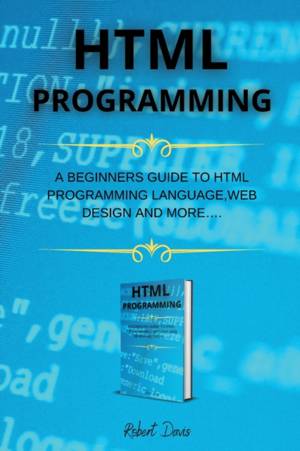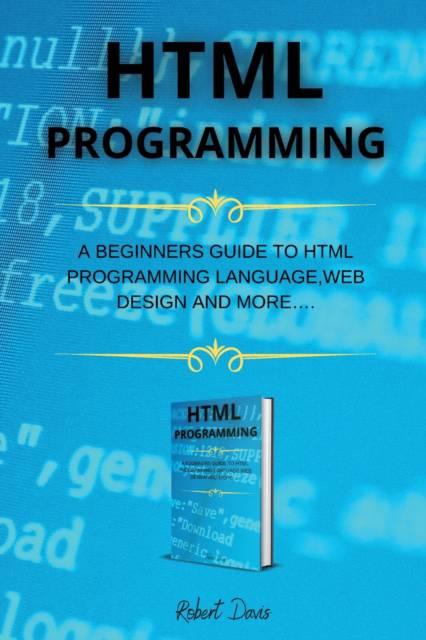
- Retrait gratuit dans votre magasin Club
- 7.000.000 titres dans notre catalogue
- Payer en toute sécurité
- Toujours un magasin près de chez vous
- Retrait gratuit dans votre magasin Club
- 7.000.000 titres dans notre catalogue
- Payer en toute sécurité
- Toujours un magasin près de chez vous
HTML Programming
A Beginners Guide to HTML Programming Language, Web Design and More....
Robert DavisDescription
Your customers will never stop reading this guide !!!
The language HTML has arrived at middle age in standard Version 4.01 and isn't relied upon to change once more. Or maybe, HTML is being subsumed and modularized as a component of Extensible Markup Language (XML).
The rise of XHTML is simply one more section in the frequently wild history of HTML and the World Wide Web, where disarray for creators is the standard, not the exemption. At the most noticeably awful point, the older folks of the World Wide Web Consortium (W3C) answerable for acknowledged and adequate employments of the language - i.e., principles - lost control of the language in the program "battles" between Netscape Communications and Microsoft. The failed HTML+ standard failed right from the start, and HTML 3.0 turned out to be so impeded in banter that the W3C essentially racked the whole draft standard. HTML 3.0 never occurred, notwithstanding what some crafty advertisers asserted in their writing.
All things being equal, by late 1996, the program makers persuaded the W3C to deliver HTML standard Version 3.2, which in every way that really matters, just normalized the greater part of the main program's (Netscape's) HTML augmentations.
Cleaner and more clear to the side, the W3C understood that HTML would never stay aware of the requests of the web local area for additional approaches to circulate, cycle, and show records. HTML just offers a restricted arrangement of report creation natives and is miserably unequipped for dealing with non-customary substance like compound formulae, melodic documentation, or numerical articulations. Nor would it be able to well help elective presentation media, like handheld PCs or insightful PDAs, for example.
Buy it Now and let your customers get addicted to this amazing book !!!
Spécifications
Parties prenantes
- Auteur(s) :
- Editeur:
Contenu
- Nombre de pages :
- 68
- Langue:
- Anglais
Caractéristiques
- EAN:
- 9781802261301
- Date de parution :
- 04-04-21
- Format:
- Livre broché
- Format numérique:
- Trade paperback (VS)
- Dimensions :
- 152 mm x 229 mm
- Poids :
- 104 g

Les avis
Nous publions uniquement les avis qui respectent les conditions requises. Consultez nos conditions pour les avis.






